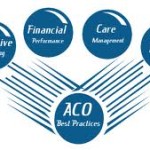
Have ACOs Failed to Incentivize Providers?
Since there has been an ongoing and rather enormous shift away from fee-for-service models, payers are tasked now more than ever being with finding a place for financial incentives to continue with ACOs now in place.
Payers know that medicine, like any business, is not immune to the pull of financial incentives. Providers, while they are noble in their careers as healers, are just as likely as a Wall Street banker to leap at the chance to accept a financial perk. Time is money in any industry, and perhaps medicine most of all.













